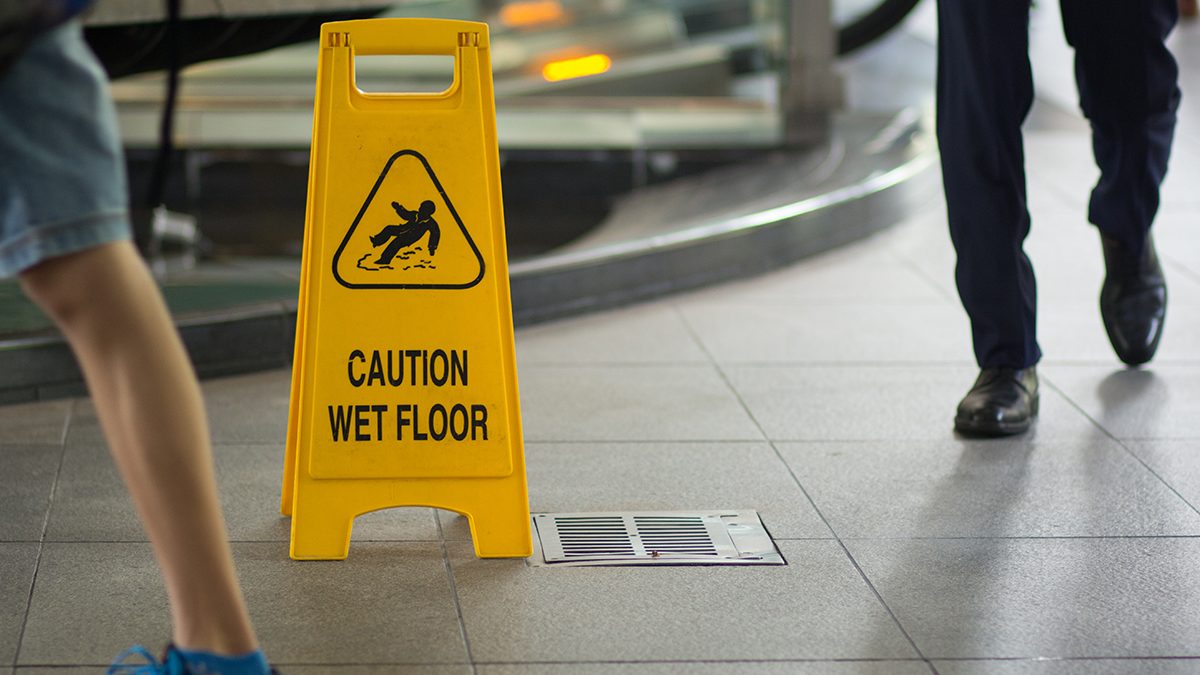
Were you involved in a slip and fall lawsuit or trip and fall lawsuit? Both types of accidents can lead to serious injuries, so is it even worth distinguishing between the two? These terms sound similar enough to be used interchangeably, but the legal system says otherwise. If you’re pursuing personal injury litigation, it’s important to understand the difference between a slip and fall lawsuit and a trip and fall lawsuit.
Slip and Fall Accidents
Slip and fall accidents occur when a person falls while walking on a surface (staircase, hallway, parking lot, or sidewalk) that is unexpectedly slippery with substances like water, ice, grease, or oil. A grocery store floor that has just been mopped may prove hazardous to unsuspecting shoppers, especially if employees forget to display a “Wet Floor” sign in the recently-cleaned area.
These types of falls can propel a person backward, often resulting in injuries such as:
- Sprained or fractured wrists and ankles
- Brain injuries
- Back injuries
- Shoulder dislocations
Trip and Fall Accidents
When people stumble over an unexpected object in their path and experience serious injuries, a trip and fall lawsuit may be in order. Suppose you’re navigating the front walk of a friend’s home and suddenly catch your foot on a loose paving stone. If you can’t stay on your feet, you will experience a trip and fall incident. Trip and fall accidents can also include tripping into a hole (pothole) on a street or sidewalk. Tripping tends to jerk a person’s body forward, leading to injuries such as:
- Foot and neck injuries
- Thumb sprains
- Limb fractures
- Broken finger bones
- Cuts and abrasions
Slip and Fall Lawsuit vs. Trip and Fall Lawsuit
When a substance makes floors unsafe, it can lead to slip and fall injuries. When an object or uneven surface makes floors hazardous, trip and falls are a likely consequence. To further illustrate the point, consider the case of a woman who filed a slip and fall lawsuit after experiencing serious injuries when she lost her footing on an icy sidewalk in front of a Crown Point, Indiana grocery store. She received $479K in damages.
Litigation Funding for Personal Injury Lawsuits
Whether you’re filing a slip and fall lawsuit or a trip and fall lawsuit, it may take months or even years for a fair settlement or for your case to go to trial. If you’re unable to work, and bills are piling up, litigation funding can help you make ends meet while you wait. This resource is not a loan. You only have to pay it back if you win your case. Contact us to learn more or apply online today.
